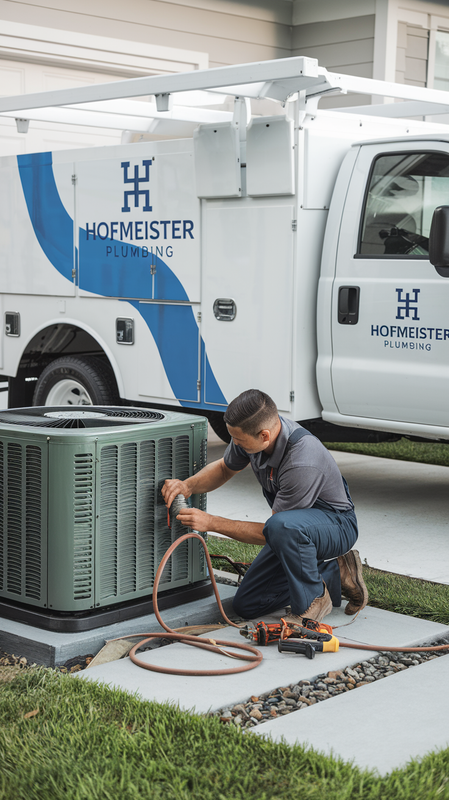Introduction
Water is an essential resource in our daily lives, and understanding how to manage it effectively can save you thousands of dollars in repairs and damages. One of the most crucial components in your plumbing system is the water shut-off valve. This article will delve deep into the intricacies of your water shut-off valve, its importance, and practical tips for maintenance, ensuring you're well-equipped to handle any plumbing emergencies that may arise.
What Is a Water Shut-Off Valve?
A water shut-off valve is a mechanical device that controls the flow of water into your home or specific fixtures. It's typically located near the main water line entering your property or under sinks connected to appliances like toilets and dishwashers. Knowing how to locate and operate this valve can be invaluable during emergencies, such as burst pipes or significant Experienced plumbers Westwood NJ leaks.
Why Is the Water Shut-Off Valve Important?
The primary function of your water shut-off valve is to stop the flow of water when necessary. Imagine waking up to an unexpected flood in your basement! In such situations, knowing where your valve is located allows you to mitigate damage quickly. Not only does it save you from potential extensive repairs, but it can also prevent mold growth and other secondary damage resulting from prolonged exposure to moisture.
Understanding Your Water Shut-Off Valve and Its Importance
Types of Water Shut-Off Valves
Ball Valves- Ball valves are known for their durability and reliability. They use a spherical disc (the ball) with a hole through its center that rotates to either allow or block water flow.
- Gate valves work well for on/off service but aren't ideal for throttling flows. They have a gate mechanism that raises or lowers to control the flow.
- Globe valves are better suited for regulating flow than shutting it off entirely. They have a disc that moves perpendicular to the flow direction.
How to Locate Your Water Shut-Off Valve
Finding your water shut-off valve can vary depending on your home's layout:
- Main Valve: Usually found at ground level near where the main water line enters your home. Individual Fixtures: For sinks, toilets, or washing machines, look under each fixture for valves controlling their respective water supply.
When Should You Use Your Water Shut-Off Valve?
It’s essential to know when to turn off your water shut-off valve:
- During Plumbing Repairs: If you're doing any plumbing work yourself. In Case of a Leak: If you notice signs of leakage or flooding. Before Leaving for Extended Vacations: To prevent potential disasters while you're away.
Common Problems with Water Shut-Off Valves
1. Leaks
Leaking valves can cause significant issues if not addressed promptly. Regularly inspect them for any signs of wear or corrosion.
2. Sticking
Sometimes valves may stick due to mineral buildup or rust. If you encounter this issue, gently wiggle the valve handle while applying some lubricant.
3. Broken Handles
If the handle breaks off while trying to operate it, you'll need immediate assistance from experienced plumbers in Westwood NJ.
Emergency Plumbing Services in Westwood
When faced with plumbing emergencies like burst pipes or severe leaks, it's critical to reach out for professional help:

- Westwood Emergency Plumbing: Offering rapid response times. Affordable Plumbers Westwood: Ensuring quality service without breaking the bank.
How Often Should You Inspect Your Water Shut-Off Valve?
Regular inspections are key! Aim for at least once every six months. This helps catch issues before they escalate into costly repairs.
The Cost Implications of Ignoring Your Water Shut-Off Valve
Ignoring maintenance on your shut-off valve can lead to various costs:
| Issue | Potential Cost | |-----------------------------|---------------------| | Minor Leak | $100 - $300 | | Major Pipe Burst | $1,000 - $5,000 | | Mold Remediation | $500 - $30,000 |
Investing time in regular inspections saves money in the long run!
FAQs About Water Shut-Off Valves
What happens if I don’t turn off my water during a leak?- Uncontrolled leaks can lead to significant property damage and expensive repairs.
- Turn it on and off; there should be no leaks around its base when closed.
- It can be DIY-friendly if you're handy but consider hiring local plumbers in Westwood if unsure!
- Yes, provided you have basic plumbing knowledge; otherwise, consult licensed plumbers Westwood NJ.
- Insulate pipes adequately and keep your home heated above freezing temperatures!
- Check the flapper's seal; you may need replacements available at hardware stores.
Conclusion
Understanding your water shut-off valve's importance cannot be overstated; it's an essential skill every homeowner should master! By maintaining this vital component regularly and knowing when and how to use it effectively, you protect not only your home but also save yourself considerable expenses down the road.
Whether you're dealing with routine checks or facing unexpected plumbing emergencies requiring Emergency urgent plumbing services Westwood NJ offers—being informed puts you one step ahead!
In summary, investing time into understanding “Understanding Your Water Shut-Off Valve and Its Importance” will empower you as a homeowner—helping maintain peace of mind amid life’s unpredictable nature! With expert insights into local plumbing services available around Westwood NJ—from emergency drain cleaning services all the way through weekend plumber offerings—you're never alone when managing life's little hiccups involving those pesky pipes!